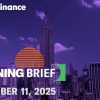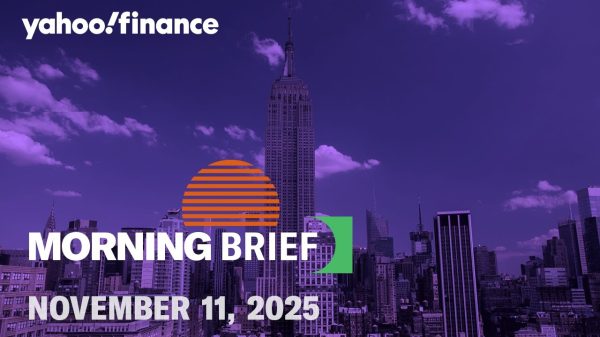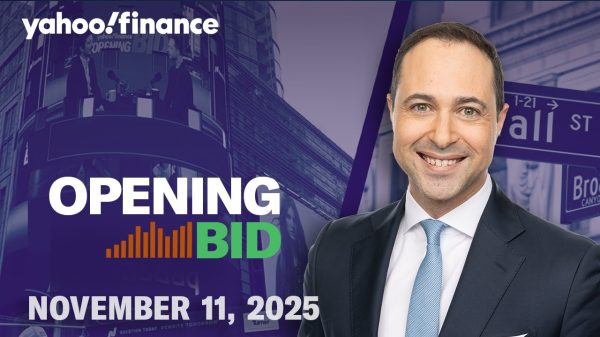TL;DR
- The United Auto Workers union have commenced strike action, with 13,000 employees at Ford, GM and Stellantis taking part
- They are seeking a 40% bump in pay after knocking back a 20% increase from the car manufacturers
- Meanwhile inflation has started to creep back up, with prices rising by 0.6% – the biggest increase in 12 months
- Top weekly and monthly trades
Subscribe to the Forbes AI newsletter to stay in the loop and get our AI-backed investing insights, latest news and more delivered directly to your inbox every weekend.
Major events that could affect your portfolio
The working world has been weird for a while now. Covid took an employment culture which had remained relatively stable for multiple decades, and then spiraled it out the window, Tom Brady style, in the space of about three weeks.
Combine that with record levels of rising prices, higher interest rates than many adults have ever experienced in their working lives, and you’ve got a situation that puts the balance of power in the employer/employee relationship in a tenuous situation.
And despite the widespread layoffs this year, these issues have now culminated in a growing list of unionizations and industrial action. The Hollywood writers strike has now been ongoing for over five months, and this week it’s the United Auto Workers who have downed tools.
13,000 workers at Ford, GM and Stellantis have walked off the job, seeking a 40% increase in pay. So far, their employers have offered them around half that.
UPS narrowly avoided their own strike action in July, coming to a deal with the Teamsters union who represent around 330,000 UPS employees.
All of this is concerning for investors. Strikes create massive impacts on production, causing revenue to fall and in some cases seeing business operations grind to a halt. The effects aren’t always felt immediately, but they can cause big problems for a company’s bottom line, and also its stock price.
In the current environment, consider it a risk worth watching in your portfolio.
—
As we said, inflation has been one of the major causes of these problems. With the cost of living increasing rapidly, employees have been struggling to make ends meet and looking for higher than normal pay increases to keep up with their rising bills.
But of course that doesn’t help the situation, with higher staff costs generally passed on to end consumers, raising prices even further (like Sony just did).
Not to mention the fact that the other side of high inflation is the central bank (the Fed) raising rates to try to bring it down. For households feeling the pinch, that makes things worse in the short term.
All that is to say that inflation is still being very carefully watched. And while rising prices don’t necessarily impact directly, higher interest rates do. It’s why we tend to see markets react negatively to Fed hikes, and usually positively to rate cuts.
Inflation has come down a long way, but the latest report showed figures coming in hotter than expected in August. The monthly increase hit 0.6%, which is the highest figure we’ve seen in a year.
The Fed doesn’t make decisions on a single piece of data, and the overall picture remains a little mixed. Inflation appears to be nudging up and the oil price has hit a 10-month high, but the unemployment rate also increased in August from 3.5% to 3.8%.
Investors looking for a clear roadmap on interest rates are likely to be disappointed for a while, but it remains one of the most important issues to keep an eye on.
Top trade ideas
Here are some of the best ideas our AI systems are recommending for the next week and month.
Rush Enterprises (RUSHA) – The truck retailer is our Top Buy for next week with our AI giving them an A rating in our Low Momentum Volatility factor. Earnings per share is up 13.3% over the last 12 months.
Under Armour (UAA) – The sportswear company is our Top Short for next week with our AI giving it an F rating in Quality Value. Earnings per share are projected to fall 13.57% in their current fiscal year according to Capital IQ.
Rambus (RMBS) – The semiconductor company is a Top Buy for next month with our AI rating them an A in Quality Value, Growth and Technicals. Revenue is up 19.1% over the last 12 months.
Carvana (CVNA) – The online car seller is a Top Short for next month with our AI giving them an F rating in Low Momentum Volatility. Revenue is down 19.33% over the last 12 months.
Our AI’s Top ETF trades for the next month are to invest in autonomous technology and robotics, volatility futures and innovative tech, and to short high yield bonds and low volatility large cap stocks. Top Buys are the ARK Autonomous Technology & Robotics ETF, the iPath Series B S&P 500 VIX Short Term Futures ETN and the SPDR FactSet Innovative Technology ETF. Top Shorts are the SPDR Bloomberg High Yield Bond ETF and the Invesco S&P 500 Low Volatility ETF.
Recently published Qbits
Want to learn more about investing or sharpen your existing knowledge? Qai publishes Qbits on our Learn Center, where you can define investing terms, unpack financial concepts and up your skill level.
Qbits are digestible, snackable investing content intended to break down complex concepts in plain English.
Check out some of our latest here:
Read the full article here











